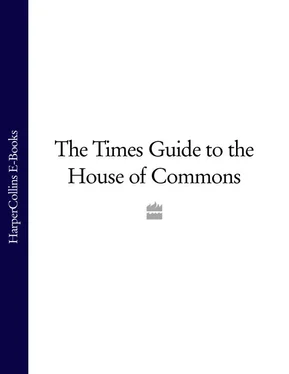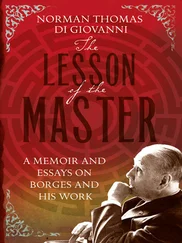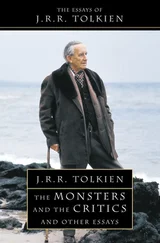And so the Parliament – the “Rotten Parliament” as some were now calling it – wound down accompanied by a litany of recriminations, the familiar sound of plotting, and one last dollop of scandal.
In the autumn of 2008, Siobhain McDonagh, a junior government whip, who during her time in office had never voted against the Government, spoke of the need to discuss Mr Brown’s position as party leader. She was swiftly sacked.
Then, in the month that Mr Martin stepped down, James Purnell, the Secretary of State for Work and Pensions, delivered another blow to Mr Brown’s authority by announcing his resignation. This was not a statement of ambition but, far more threateningly, of principle. “I now believe your continued leadership makes a Conservative victory more, not less, likely…that would be disastrous for our country. I am therefore calling on you to stand aside to give our party a fighting chance of winning.”
As speculation about Mr Brown’s future swirled, his ministers backed him, with potential rivals such as Harriet Harman and David Miliband denying that they were preparing leadership bids. But with each plot, and each denial, his chances of clinging to power in the coming election seemed to recede. The final attempt to unseat him came in January 2010, when the former Health Secretary Patricia Hewitt and former Transport Secretary Geoff Hoon jointly called for a secret ballot on the future of Mr Brown’s leadership. The plot fizzled. Mr Brown later called the abortive mini-coup “a form of silliness”.
Perhaps the final symbolic motif for this grim Parliament came just before the election was announced, when Mr Hoon, Ms Hewitt and the former minister Stephen Byers were each caught out by undercover journalists posing as lobbyists. The former ministers appeared to be cashing in on their influence. Ms Hewitt explained that, for a fee of £3,000 a day, she could help “a client who needs a particular regulation removed, then we can often package that up”. Mr Hoon was heard saying that he was “looking forward to…something that, frankly, makes money”.
Above all, the crass remarks made by Mr Byers seemed to sum up the previous five years. “I am a bit like a sort of cab for hire,” he explained to the fake lobbyist. “I still get a lot of confidential information because I am still linked to No 10.” His trump card came close to self-parody: “We could have a word with Tony”. Mr Blair was long gone from No 10, but his potential earning power lingered on.
At the start of the 54th Parliament, public confidence in politicians was already crumbling; by the end it was radically eroded. The perception that MPs lined their own pockets at taxpayer expense was widespread in 2005; by 2010 it was universal conventional wisdom. Unfairly, but understandably, Parliament had come to be seen as one large rank of cabs for hire. The tumult, sleaze and political skulduggery left the public jaundiced and angry, and many MPs traumatised and exhausted. Contemplating her own retirement, Ann Widdecombe spoke for many when she remarked: “I find that my uppermost sentiment is one of profound relief.”
Like Oliver Cromwell, surveying the Rump Parliament, the public’s patience had run out: “You have sat too long for any good you have been doing lately…Depart, I say; and let us have done with you. In the name of God, go!” And they went: in addition to the 149 MPs who stood down before the 2010 election, 76 were voted out of office in May of that year. In some ways, both the level of interest in the election, and a result giving no party an overall majority, were also an accurate reflection of the rancour and uncertainty of the five years that preceded it.
The unhappy 54th Parliament was, perhaps, a necessary trauma. Wholesale political reform became inevitable. Closer scrutiny of parliamentary expenses began. The gravy train hit the buffers, making a fantastic mess that will take many years to clear up.
Britain has a new Parliament, a new form of government and a large new crop of MPs. They will make their own mistakes and commit their own sins, but only this can be predicted with absolute certainty: no MP in the 55th Parliament will ever buy a duck house. Ben Macintyre was parliamentary sketch writer for The Times from 2002-04
The work of the House of Commons
The growing powers of the humble backbencher
Peter Riddell
Chief Political
Commentator
One of the great paradoxes of the House of Commons is that just as its public standing has hardly ever been lower, MPs have seldom been more hard-working or potentially more effective. Procedural changes over the past dozen years have given backbench MPs more chance to play a creative role at Westminster.
The “declinist” view of Parliament has, of course, been reinforced by the expenses scandal (as discussed in an accompanying article). There is nothing new in such complaints. There never was a golden age. Every generation has had protests that the executive is too strong and the legislature too weak but, as the Hansard Society’s Annual Audit of Political Engagement showed in March 2010, while the expenses row did not create a problem of trust, which has existed for many years, it did reinforce public scepticism. Less than two fifths of the public believe Parliament to be one of the two or three national institutions that have most influence on their everyday lives.
The counter view has been put most eloquently by Jack Straw, a former Leader of the Commons and closely involved in constitutional reform during his 13 years in the Cabinet. He argued, in a lecture to the Hansard Society in March 2010, that “the view that Parliament is irrelevant or powerless is complete nonsense”. He acknowledged that the institution was far from perfect, and the balance remained tilted in the Government’s favour, but changes in recent decades had strengthened the legislature. As Mr Straw pointed out, in the three decades from the mid-1940s until the mid-1970s, the executive was all powerful. Backbench MPs seldom rebelled: there were two whole sessions in the 1950s when not a single Conservative backbencher defied the whip and voted against the Government. There were few select committees. Those that did exist were mainly weak, apart from the Public Accounts Committee. Admittedly, many newspapers until the mid-to-late 1980s did carry full reports of what was said on the floor of the Commons, but radio broadcasting did not arrive on a regular and continuous basis until April 1978, and television cameras not until November 1989.
Since the 1970s, a number of far-reaching changes have been introduced, most significantly in 1979 with the creation of 12 broadly departmental select committees. Each big department is monitored by a select committee to examine its policymaking and performance. There have been variations in the number, titles and remit of committees to match changes in the machinery of government, but the principle has remained. This has created wideranging opportunities for MPs to question ministers, civil servants and interested bodies, and has unquestionably broadened the range of public debate. For instance, the opening up of decisions on setting interest rates, both in the mid-1990s and then with the creation of the Monetary Policy Committee in 1997, has meant that the Governor and senior directors of the Bank of England appear before the Treasury committee at least once a quarter.
There has been a similar opening up in other areas of policy. The banking crisis was examined frequently from autumn 2007 onwards by the Treasury Select Committee, when all the main players appeared at often uncomfortable hearings. The Defence Select Committee also pursued allegations that British troops in Iraq and Afghanistan were inadequately supplied and supported. The public gathering of evidence and the questioning of ministers has often been more important than the recommendations in the final reports.
Читать дальше












